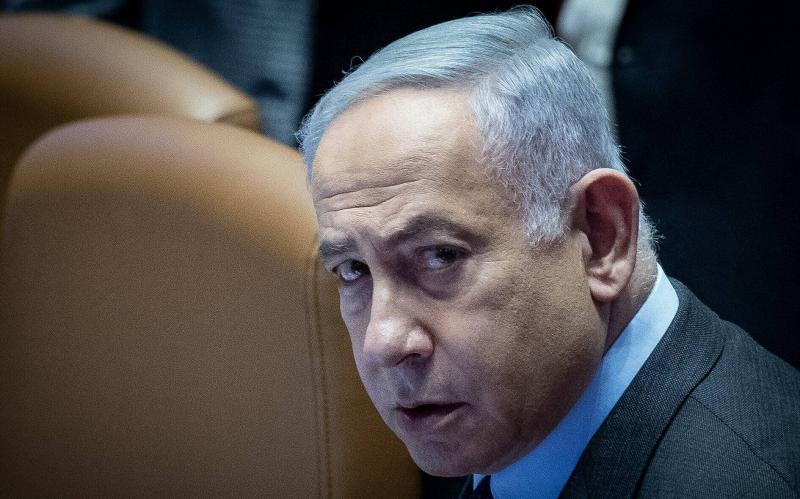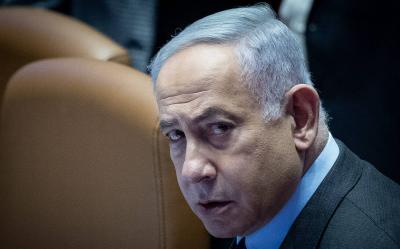Benjamin Netanyahu fears the end of the war. There will be investigations and many questions about responsibilities and failures. For him, the issue is almost a matter of life or death. However, the matter cannot be reduced to Netanyahu clinging to his office to shield himself from accountability. It is true that the Prime Minister's signature is essential in any assassination operation of a top enemy that could lead to security and political repercussions, but it is also true that the military and security institutions are the ones that present the options to the Prime Minister for him to choose from.
It is likely that the recent assassinations in Beirut and Tehran expressed the Israeli security establishment's desire to restore its deterrent capability, which was deeply shaken following the start of "Operation Al-Aqsa Flood." The battle for image has always been important for Israel. They believe that making enemies feel the heavy price they might incur from their attacks could deter them from carrying them out.
Timing in wars is exceptionally important. The assassinations came after Netanyahu stood before Congress for the fourth time, where he received long applause despite noticeable absences that cannot be overlooked without exaggerating their effects. In that speech, Iran was mentioned 27 times, while there was no talk of a ceasefire. Some believe Netanyahu concluded from his trip that the United States cannot withdraw its defense of Israel, despite Joe Biden's admonitions and Kamala Harris's remarks.
These individuals assert that Netanyahu waited for Hamas in Gaza to be sufficiently depleted before turning his attention to what he considers the danger coming from Beirut and Tehran. They say that the Israeli Prime Minister felt Hezbollah is unwilling to engage in a widespread war, and that Tehran is unwilling as well, which is why he decided to provoke this war to embarrass both sides.
Netanyahu approved two blows against Iran and Hezbollah, leaving no option for retaliation and followed this with an official announcement confirming the killing of Mohammed Deif, the top commander of Hamas's military wing and one of its brightest symbols. Perhaps he intended with all this to give the next phase of the war the character of confrontation with Iran and its allies rather than with the Palestinians in Gaza and the West Bank.
He aimed to open the file on Iran, its regional role, and its nuclear program to sideline the issues of a ceasefire in Gaza and a settlement regarding the Palestinian state. He may have sought to revive the specter of a U.S.-Iranian confrontation if America were to participate in thwarting an Iranian attack on Israel, especially if Tehran's allies were to attack military bases in the region.
Some believe Netanyahu has pushed the region to the brink of a widespread war to prevent an open war of attrition and to demand Iran ceasefire across all fronts without exception. The Israeli military and security institution know that Hezbollah's rockets and drones can reach any point in Israel. The same applies to Iran's rockets and drones. Despite this, they chose to put both parties in front of the option of widespread war.
Hezbollah cannot fail to respond to the assassination of its senior military figure Fouad Shukr in his stronghold in southern Beirut, nor can Iran ignore the assassination of Hamas leader Ismail Haniyeh in Tehran. The Israeli entity acts as if it is trying to shift the war from a confrontation with Yahya Sinwar's program to a confrontation with the Iranian leader's program. Therefore, Netanyahu insisted yesterday that "we are engaged in a multi-front war against Iran and its proxies, and we will strike hard at every one of its arms."
After ten months, Israel decided to deal with "Operation Al-Aqsa Flood" as if it were the beginning of a coordinated and open war of attrition that warrants halting it through the risk of venturing toward a comprehensive conflict with its sponsors. Netanyahu's behavior in recent days explains his actions over the past ten months. A ceasefire was not an option for him, even if it were accompanied by the gradual release of hostages. He saw delivering a crippling blow to both Hamas and Gaza as a strategic goal that far outweighed the importance of celebrating the return of hostages.
Some believe he dreams of inflicting on Hezbollah losses similar to those he inflicted on Hamas, despite the differences in the nature of forces, the theater of confrontation, and regional depth. This also explains why the Biden administration struggled to extract an Israeli position that would facilitate the passage of a "deal."
The Middle East lives in anticipation of a blow. There is an increasing belief that it will be more severe than what the region experienced last April, particularly due to the preceding assassinations. This anticipation is accompanied by questions about the limits of the fire. What will be the role of Iranian-backed Iraqi factions? What is the extent of the Houthis' involvement? What role will the Syrian front play? And will Netanyahu respond to the Iranian blow by shifting the battle weight to the "Lebanese arena"?
For decades, we have heard that the Middle East is living on a hot plate. The new scenes are unprecedented, and the summer of assassinations and exchanges of blows is more inflamed. Where are the limits of Israeli influence in the region? What are the boundaries of the Iranian role? And can America accept the changes to organize "rules of engagement" between Iran and Israel that would distance the region from the brink of widespread war?
This is the terrifying Middle East; governments are bewildered, armies are anxious, factions are on high alert, American bases are prepared, and warships do not sleep... how difficult are the days of this part of the world!




